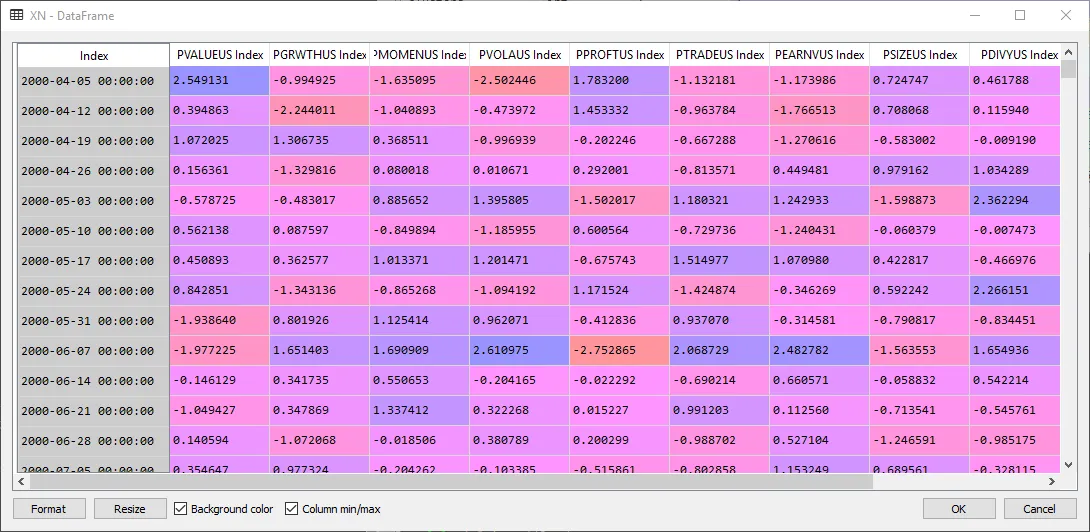我有几个价格回报系列,希望计算滚动N天的相关性,使得日期之间没有重叠,即如果我的第一个相关矩阵属于[2000-04-05 - 2000-06-04],下一个相关矩阵应该属于[2000-06-05 - 2000-08-04]。使用传统的df.rolling(window=window).corr(df, pairwise=True)会返回重叠的日期。
我知道从滚动方法中切片结果可以给我想要的,但这意味着我们正在用时间来计算我不会使用的相关性,从而导致资源浪费。
有什么建议吗?
更新:
以下是输入样本的示例: 更新2:
我知道从滚动方法中切片结果可以给我想要的,但这意味着我们正在用时间来计算我不会使用的相关性,从而导致资源浪费。
有什么建议吗?
更新:
以下是输入样本的示例: 更新2:
outputs for pd.show_versions()
INSTALLED VERSIONS
------------------
commit: None
python: 3.6.3.final.0
python-bits: 64
OS: Windows
OS-release: 10
machine: AMD64
processor: Intel64 Family 6 Model 63 Stepping 2, GenuineIntel
byteorder: little
LC_ALL: None
LANG: en
LOCALE: None.None
pandas: 0.20.3
pytest: 3.2.1
pip: 9.0.1
setuptools: 36.5.0.post20170921
Cython: 0.26.1
numpy: 1.14.5
scipy: 0.19.1
xarray: None
IPython: 6.1.0
sphinx: 1.6.3
patsy: 0.4.1
dateutil: 2.6.1
pytz: 2017.2
blosc: None
bottleneck: 1.2.1
tables: 3.4.2
numexpr: 2.6.2
feather: None
matplotlib: 2.1.0
openpyxl: 2.4.8
xlrd: 1.1.0
xlwt: 1.3.0
xlsxwriter: 1.0.2
lxml: 4.1.0
bs4: 4.6.0
html5lib: 0.999999999
sqlalchemy: 1.1.13
pymysql: None
psycopg2: None
jinja2: 2.9.6
s3fs: None
pandas_gbq: None
pandas_datareader: None
